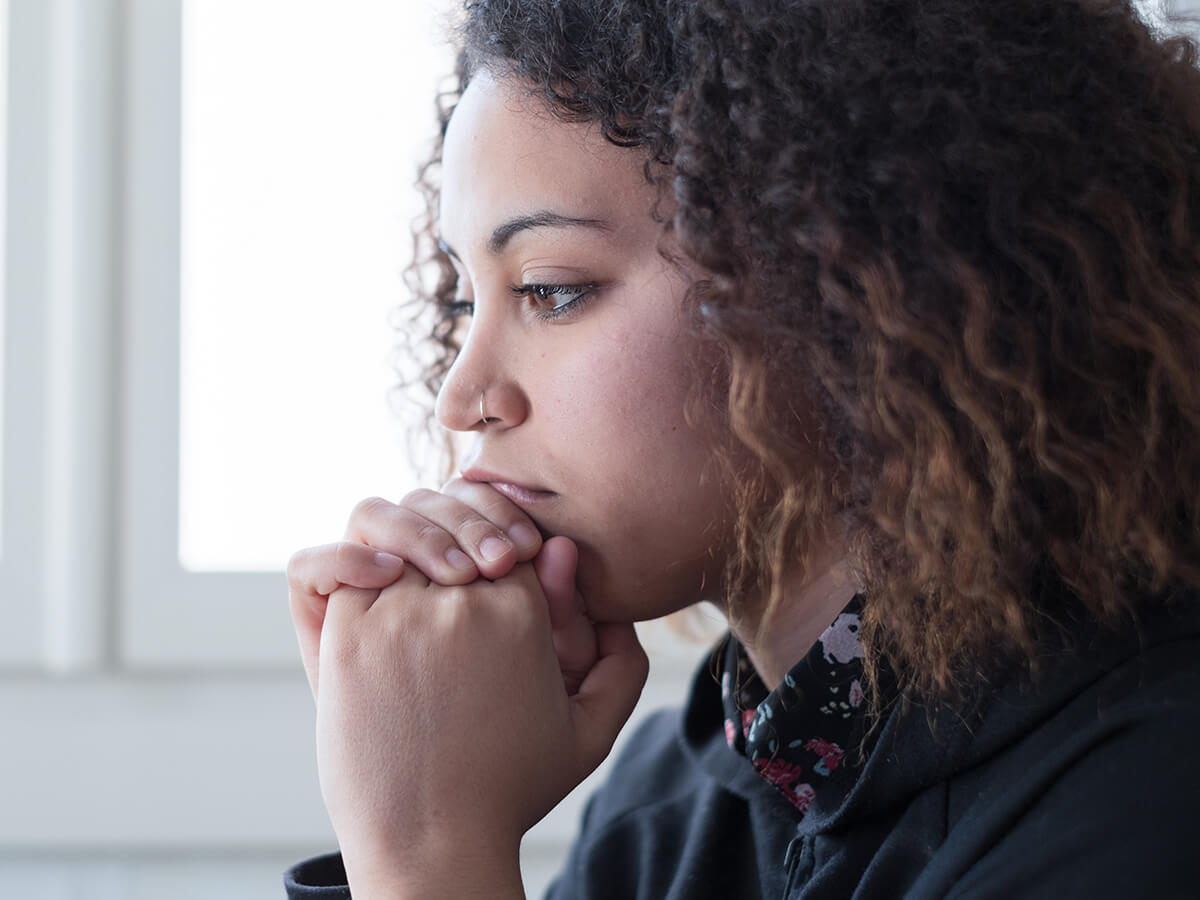Podcast: Download
Subscribe: RSS
Tears spilled gently from my eyes as I watched my 19-year-old daughter triumphantly cross the finish line of her first marathon. The emotions that whirled around in my head were so mixed: proud of her accomplishment but sad by what had prompted it and what it had come to mean.
Six months earlier my husband had been diagnosed with cancer, and as a surprise she signed up to run with the Livestrong Cancer Foundation team at the Shamrock Marathon in his honor. She raised more money than anyone on her team except for the CEO of the foundation and was the featured runner for the marathon’s publicity newsletter. Sadly, she was now running the race in her Dad’s memory instead of in his honor, as he had died a few weeks earlier. The experience was made even more poignant by the fact that he had run the same race thirty years earlier, and she clutched his time-stained winner’s patch as she sobbed past the finish line. She shared her story easily, feeling some comfort and relief in the telling.
Meanwhile, my 17-year-old daughter was plugging through the last semester of her senior year, trying to juggle high school challenges as well as deal with my husband’s diagnosis, and then six short months later, his death. Her calculus homework and student council president responsibilities were fulfilled as she compartmentalized her life into home and school. She resisted sharing her situation with teachers and even friends, convinced at least on some level that she should be able to handle it on her own and afraid that expressing her pain and vulnerability meant she was not in control. In a college scholarship interview, a judge innocently asked about her dad, and she froze, barely able to breathe. Maybe that was a turning point for her, but she gradually realized that death is not something any of us can handle alone.
These reactions of my own teenagers illustrate several points. First, grief is unique and individual, different for every one of us. There is no pattern, no timetable, no checklist of tasks to accomplish. Reactions vary: anger, despair, behavioral issues, indifference, emotional breakdown – all are possible even in the same person at different times. My family did not do grief perfectly – there is no such thing – but we did learn some lessons that might help others.
Here are my top suggestions to help your teen cope with grief.
- Try to keep the routine as close to normal as possible. The predictable pattern of daily life can be very comforting in times of upheaval. It provides reassurance that life goes on and it inspires hope for the future. Even teenagers appreciate stability and consistency despite their typical complaints to the opposite.
- Let teachers know what is happening. Teens often express emotion in behavioral issues, anger or withdrawal. Teachers can deal with those behaviors if they understand the impetus behind them. My daughter didn’t want me to tell anyone at school when her dad first got sick, but after he died and concentration at school proved to be difficult, she appreciated her friends’ and teachers’ patience and understanding.
- Communicate honestly. Don’t hide your own sadness or try to “be strong” for your child. Sharing your own candid feelings openly and sincerely may help your teen begin to verbalize their own. At the same time, don’t force them to talk if they aren’t ready or interested. As with my own daughters, every person articulates their pain in different ways.
- Listen. Since my own grief journey was in process, I was not able to tell my kids what they should or shouldn’t do in theirs. This turned out to be a good thing, since most young people appreciate when you simply listen and accompany them rather than tell them how they should grieve. Keep in mind that their friends who have not experienced grief themselves may not understand. Specifically, comments like, “It’s time to move on,” and “Your Dad would want you to get back to normal,” are not useful as they incite guilt and self-criticism for a teen who is not yet at that point in their journey.
- Find small ways for your teenager to help at home, but don’t push. Don’t add chores to their already overloaded schedules and don’t give them something new to feel guilty about. One of my daughters appreciated the distraction of grocery shopping, while her sister was much more comfortable helping with laundry. Brainstorm things that help the whole family and see who has the energy and time to do them.
- Remember that grief can return over time in unexpected waves. Holidays and milestones like graduations and weddings in particular renew our heartache as we miss those who are no longer alive to celebrate them. Address the problem head-on instead of waiting for it to rear its ugly head. Last year, I intentionally ignored Father’s Day, thinking my daughters would forget it if I didn’t mention it. That was a big mistake, and they felt isolated and alone instead. Special days require acknowledgment of the person who has died. They provide opportunity to nurture memories and start new traditions that include loved ones we’ve lost. Keeping someone alive in our memory keeps them alive in our hearts.
Dealing with grief is tough at any age, but it can be especially difficult for a teenager. Teens are just starting to separate from their families and parents. They are dealing with the challenges of identity, fluctuating hormones, independence and peer pressure. You and your child will never forget the person you lost, but you will once again find joy and peace. Grief is a journey that everyone travels at some point in their lives. It never really ends, but it does get easier.

About the author: Colleen Arnold is a family physician, a widow, and a mother of three young adult daughters. She enjoys hanging out with family, writing, reading, and walking. You can read her blog at ColleenArnold.org.









In 1998, my Daddy passed away after a battle with lung cancer. Our son was 14 years old at the time. Daddy and our son were always very close. The grief felt by our whole family was overwhelming. We did take time to remember we all grieve in different ways and different times. Our son had lost his best friend, his Granddaddy. At 14 years of age, expressing emotions was hard. I am thankful for patience, guidance and understanding by friends and family. Their love helped us experience our grief in special ways.
Wow this was a great writing Colleen. So proud of you! Love you. ❤️❤️❤️